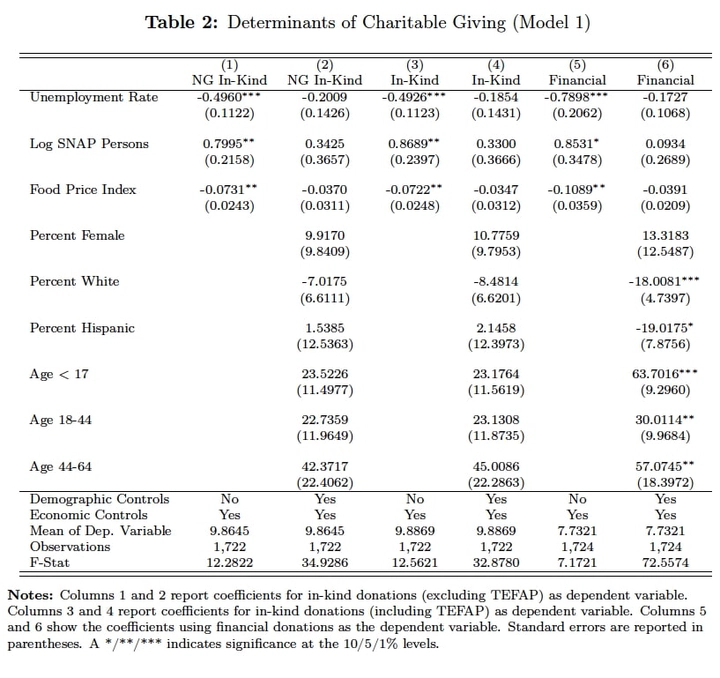Automatic Nutritional Stabilizers and the Role of Charitable Food Assistance during Times of Crisis
 Image credit: Luis Navarro
Image credit: Luis NavarroAbstract
We examine the role of charitable food assistance during periods of economic distress by looking at donations to a large Midwestern food bank. First, we explore the historical determinants of in-kind food and financial donations, including during the COVID-19 pandemic. We find that both in-kind and financial donations dramatically increased at the onset of the pandemic but these increases were not persistent. As a result, we argue that this is evidence of the charitable food system serving as an “automatic nutritional stabilizer” in accepting charitable donations on behalf of households in need during times of crisis.
Publication
R&R JAAEA
We examine the role of charitable food assistance during periods of economic distress by looking at donations to a large Midwestern food bank. First, we explore the historical determinants of in-kind food and financial donations, including during the COVID-19 pandemic. We find that both in-kind and financial donations dramatically increased at the onset of the pandemic but these increases were not persistent. As a result, we argue that this is evidence of the charitable food system serving as an “automatic nutritional stabilizer” in accepting charitable donations on behalf of households in need during times of crisis.
Authors
Assistant Professor, Public Finance & Financial Management
I am an Assistant Professor of Public Finance and Financial Management in the Evans School of Public Policy and Governance at the University of Washington. My research interests include public finance, state and local tax policy, fiscal federalism, financial management, municipal debt, and generally the intersection of public economics and public administration. I graduated with a PhD in Public Affairs (Public Finance and Policy Analysis) from the O’Neill School of Public and Environmental Affairs at Indiana University, Bloomington.